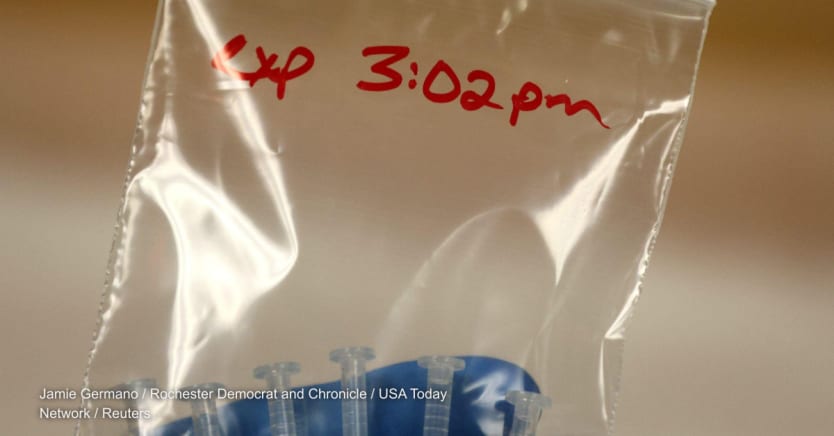African nations have destroyed 450,000 expired COVID-19 vaccine doses

African nations have destroyed 450,000 doses of expired COVID-19 vaccines since the beginning of the rollout, said Dr. Richard Mihigo, program area manager for immunization and vaccine development at World Health Organization’s Africa regional office, during a press briefing on Thursday.
Sign up for Devex CheckUp
The must-read weekly newsletter for exclusive global health news and insider insights.
These countries include Malawi, South Sudan, Liberia, Mauritania, Gambia, Sierra Leone, Guinea, Comoros, and the Democratic Republic of Congo.
This is a consequence of delays in shipment of vaccine doses, especially of the AstraZeneca vaccine, which meant countries couldn’t roll them out before expiration, Mihigo said.
“It’s deplorable,” he said.
Malawi was the first country to publicly destroy vaccine doses in May. The African Union’s African Vaccine Acquisition Task Team shipped over 900,000 doses of AstraZeneca vaccine to 13 African nations through a donation from telecommunication group MTN in mid-March that had an April 13 expiration date. But while the Serum Institute of India, which manufactured these doses, extended the shelf-life to July 13, there was still confusion around the expiration dates.
The beginning of the end for Africa’s COVID-19 vaccine struggles?
Shipments of U.S.-donated vaccines are scheduled to begin their journey to Africa next week.
Countries have also faced challenges around planning and funding for in-country rollouts, as well as vaccine hesitancy, which has made it difficult for countries to quickly administer the jabs into the arms of citizens.
Why it matters: Access to vaccine doses on the continent is incredibly limited and many countries continue to experience new waves of the pandemic, leading to increases in hospital admissions and shortages in oxygen and intensive care beds. Only 1.5% of the population across the continent is fully vaccinated.
Hastened pace: Mihigo expressed confidence that African countries are now rolling out vaccine doses more rapidly. But he also cautioned that as new shipments of vaccines arrive in large numbers in African nations in the coming months, there is a need to increase the current pace of administration of vaccines by at least three- to five-fold.

Search for articles
Most Read
- 1
- 2
- 3
- 4
- 5
